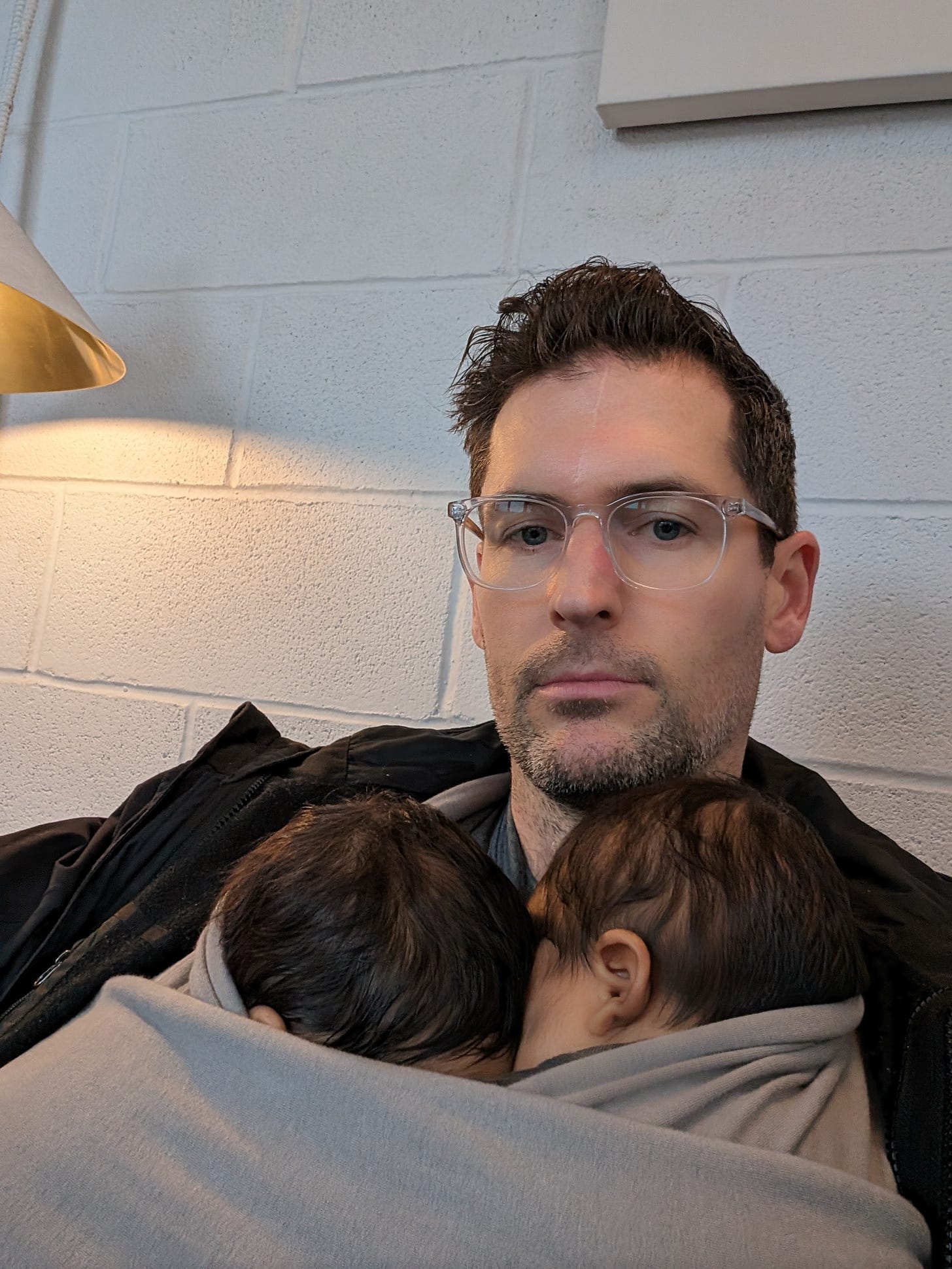An article in the Economist magazine a long while ago has sat in the back of my mind. It bounces back up to the surface every so often. Never for any obvious reason. The way it bounces back up is with the question: what if?
What if traditional economics took to heart the points made by feminist economists?
I'm curious what the numbers are. I want to see the picture painted by feminist economists in the article I read all those years ago (I find two with that search term in the magazine publishing since 1843, The Thinking Behind Feminist Economics and explainer that’s likely only on the website and a column by the name of Free Exchange.
Feminist economics is suddenly relevant to my life these days in a way it never was for me before kids. Having 4 month old twins demands a lot of care. A feminist economist, Dr Waring in If Women Counted points to care as a fundamental difference between the traditional and feminist economics. Unpaid care work is excluded from economic valuation. Waring argues that traditional economic models undervalue or completely disregard the essential work of caring for children, elders, and the sick because this work isn't performed in a marketplace and doesn't generate a monetary salary.
Care work is obviously fundamental to the economy. Waring highlights how unpaid care work allows people to participate in paid labor. If all the childcare, eldercare, and housework were suddenly monetized, it would dramatically alter Gross National Product (GNP) calculations. On top of the wild misrepresentation of actual economic activity, current systems undervalue women. Because unpaid care work is primarily performed by women, its exclusion from economic measures reinforces gender inequality.
In other more personal words, if my partner and I purchase this care it "counts." If we do it ourselves it is not. Whyyyy??? And what impact does this have on our personal lives? What about society at large?
But this gets me thinking beyond my current life situation.
What might an exhaustive list of all unpaid economic activities, like care, look like?
What would the GDP numbers look like? In every country not just the US?
What effect might counting care, specifically, have on our society?
For this question I want you to ponder the old management saw, "you can't improve what you don't measure." One of the articles points out that because of this we likely, one, misunderstand the impact of policy, say when cutting a social program, and two, underinvest in ensuring and improving the quality of care. Just like in management.
A wild idea, but could one of the impacts of miscounting economic activity be populations shrinking?
While The Economist magazine has published nothing, according to a quick search with these terms, about feminist economics since 2016, they publish quite often lately, articles about populations shrinking all over the "developed" world. The population picture they paint is a shocking one. Economics and markets and investors and pensions and all kinds of institutions take population growth for granted. What if by sustaining and maintaining this bias against women/unpaid economic activities we have underinvested in activities like care, and shot ourselves in the proverbial foot, creating a doom loop of population growth deceleration for society?
What if the change was made as simply the right thing to do? How might all groups thrive?
What if measuring all paid and unpaid "economic" activity resulted in an economics that worked better for everyone and made more sense as a field of study?
For this question ponder what happened in astrophysics. The numbers didn't add up. But they did once researchers posited "dark matter." Dark matter's existence is inferred rather than directly observed. The first clue came in the 1930s from astronomer Fritz Zwicky's study of the Coma Cluster of galaxies. He observed that the galaxies moved too fast to be held together by the gravity of the visible matter alone. This hinted at the presence of invisible matter, later called dark matter. Further evidence came in the 1970s from Vera Rubin's work on galaxy rotation. She observed that stars at the outskirts of galaxies rotated at speeds that defied predictions based on the visible matter. This again suggested the existence of dark matter, which provided the necessary gravity to hold the galaxies together. Since then, various observations like gravitational lensing by galaxy clusters and the cosmic microwave background radiation have further solidified the case for dark matter. Even though we can't directly see it, its gravitational influence on visible matter is undeniable.
What if by considering unpaid economic activities we made the science actually make more sense?
This post started with me giving myself permission to pursue random ass curiosity instead of sticking to my Extragrad, I had a session about this script. In the end it reminded me what I want this effort to look like in the end. As I talk about most, Extragrad is an effort that comes from me wanting to ensure I and anyone else who wants to, has someone to talk in depth with about what they read. More often than not fiction.
But it also stems from some wanting to go down rabbit holes like this one with others. I think of it as, not a group conversation about a single book but more of a conversation about a topic. A adult-in-your-free-time-I’m-not-going-to-go-back-to-school-for-this “study group. What if we could form these and dissolve them as our interests in a topic like feminist economics ebb and flow?
Sounds cool, doesn’t it? I mean, look at all these fun what if’s to explore…
I’ll start creating study group chats on Substack and we’ll see who bites.
Podcast (Coming soon)
Workshops (Coming soon)
Reach out to me just for fun! - tommy@extragrad.com


